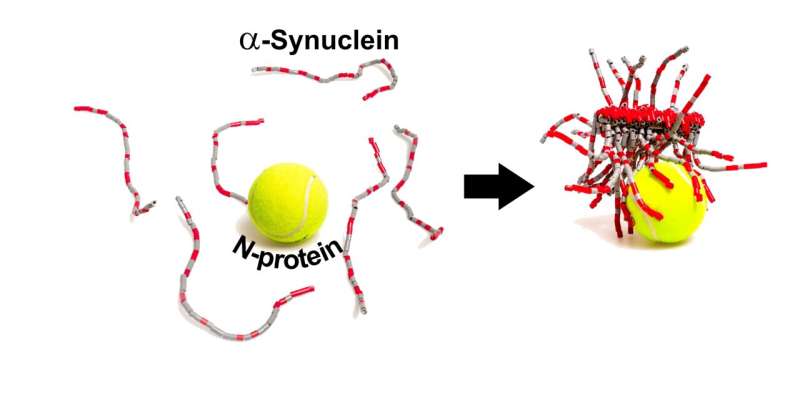SARS-CoV-2 protein interacts with Parkinson’s protein, promotes amyloid formation


Case reports of relatively young COVID-19 patients who developed Parkinson’s disease within weeks of contracting the virus have led scientists to wonder if there could be a link between the two conditions. Now, researchers reporting in ACS Chemical Neuroscience have shown that, at least in the test tube, the SARS-CoV-2 N-protein interacts with a neuronal protein called α-synuclein and speeds the formation of amyloid fibrils, pathological protein bundles that have been implicated in Parkinson’s disease.
In addition to respiratory symptoms, SARS-CoV-2 can cause neurological problems, such as loss of smell, headaches and “brain fog.” However, whether these symptoms are caused by the virus entering the brain, or whether the symptoms are instead caused by chemical signals released in the brain by the immune system in response to the virus, is still controversial. In Parkinson’s disease, a protein called α-synuclein forms abnormal amyloid fibrils, leading to the death of dopamine-producing neurons in the brain. Interestingly, loss of smell is a common premotor symptom in Parkinson’s disease. This fact, as well as case reports of Parkinson’s in COVID-19 patients, made Christian Blum, Mireille Claessens and colleagues wonder whether protein components of SARS-CoV-2 could trigger the aggregation of α-synuclein into amyloid. They chose to study the two most abundant proteins of the virus: the spike (S-) protein that helps SARS-CoV-2 enter cells, and the nucleocapsid (N-) protein that encapsulates the RNA genome inside the virus.
Source: Read Full Article




